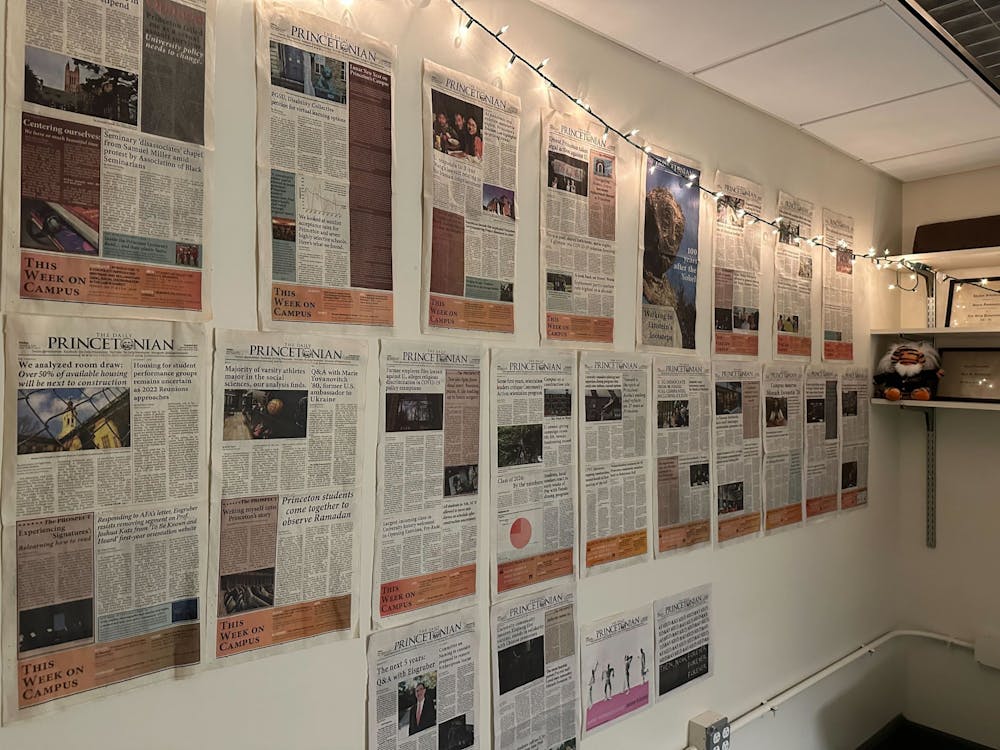In The Daily Princetonian newsroom, there’s a common, if jocular, refrain: “It’s just newspaper club.” It’s meant to serve as an affirmation: a reminder to keep things in perspective during challenging moments and to remember that we are first and foremost a community of college students.
We are indeed a newspaper club — but we’re also a newspaper. A very real, local paper that provides a service for the community.
Across the country, local newsrooms are being gutted by profit-driven actors to dramatic effect. This week, The New York Times published a searing exposé, revealing that a newly elected GOP Congressman seems to have fabricated much of his resume. As many journalists quickly pointed out, however, the real story may be less about a lying politician and more about the decline of local journalism that it signals. Adequately funded and dogged local news might have caught such blatant fraud prior to the election.
As Mary Ellen Klas, a veteran state government reporter for The Miami Herald, wrote, one of the most significant impacts of the shrinking of local news is “diminished government accountability.”
“The change was almost imperceptible at first,” she wrote in 2019. “As newsrooms cut their statehouse bureaus, they also reduced coverage of complex issues like utility and insurance regulation, giving them intermittent and often superficial attention. Elected officials no longer worried about the appearance of being aligned with special interests because few reporters were connecting the dots.”
Aspiring journalists, like the ones at the ‘Prince,’ are graduating into a reality with some sobering truths. Readers’ access to reporting is often at the whim of a billionaire. A secretive hedge fund rips hometown papers to shreds. Even some of the best-resourced outlets are cutting their storied internship programs.
This landscape requires us to recognize that students like the ones on this paper’s staff are not “aspiring” journalists — they are journalists. While grieving alongside their classmates, they report on tragic loss. While fearing for their own health amid public health emergencies, they keep their community informed. While campus is caught in the crosshairs of national controversy, they strive to lend clarity to the conversation. And, not infrequently, they do so with greater accuracy, care, and empathy than the professional journalists who parachute in, swooping up the occasional campus story.
Why? Because a student journalist’s incentives, much like those of any local reporter, tether them to truth-seeking and fairness. When you find yourself in community with your readers — who are also your sources, who are also your classmates and hallmates — you are more likely to understand the complexity of their stories.

Throughout the past year, I’ve seen time and again how being a student is an asset when it comes to being a journalist, not an impediment. It’s what allowed Head Sports Editor Julia Nguyen to tell the layered story of a ‘highly charged’ year for Princeton’s swim and dive community. It’s what enabled Senior News Writer Amy Ciceu to unravel seven years worth of faculty conflict in the School of Architecture. And today, it’s what allowed Assistant News Editor Lia Opperman to investigate the recent resignations of three Princeton staff members who worked on the University’s Diversity, Equity, and Inclusion initiatives.
Journalism isn’t defined by made-for-television tropes about breaking news. It isn’t defined by the vastness of a newsroom’s resources, or by its global focus. All that’s required for newsrooms to succeed is to tell the stories that matter to their communities most. Because I joined a college newspaper club, I feel I’ve been given the chance to do that for the past four years. I’m deeply grateful for those stories we’ve told — and even more so, for the stories the ‘Prince’ has yet to tell.
Marie-Rose Sheinerman is the 146th Editor-in-Chief of The Daily Princetonian; this letter represents her views only. She can be reached at ms78@princeton.edu. Her term as editor-in-chief ends on Dec. 31, 2022.









